Prepping is just one of those exceptionally large topics that encompasses so many micro-interests that it can be overwhelming to finally begin, even if you are convinced that you want to be a prepper. Taking those micro-interests, prepping benefits from as many skills as you can learn from different fields, combining them ultimately into one huge passion for being able to thrive in as many difficult scenarios as life can possibly throw at you.
Preppers are passionate about:
- Wilderness, camping, and outdoor skills,
- First aid, health and fitness,
- Frugality, saving and personal finance,
- Solar power and grid independence,
- DIY and self-sufficiency,
- Knives, tools, and EDC,
…as well as many other topics.
Is it even necessary, therefore, to point out how difficult prepping can be? Just looking at the list above and thinking about how much work any sort of mastery of those topics individually would take is a bit daunting in itself…
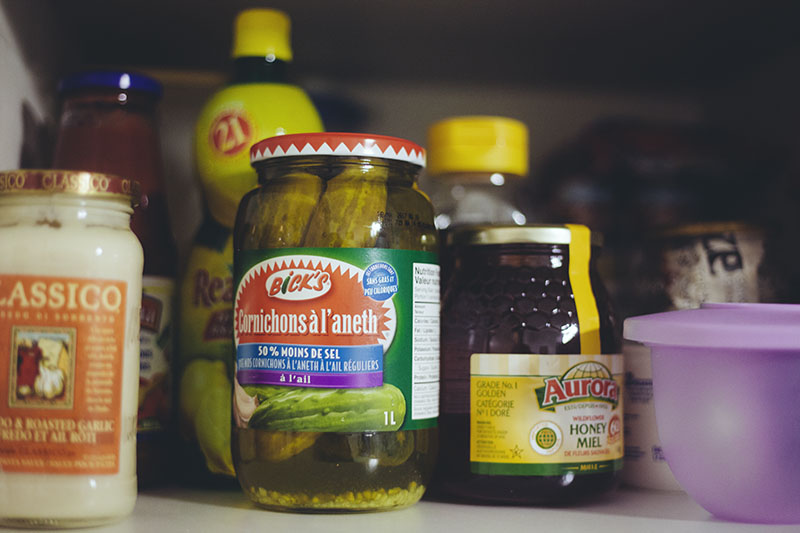
The Big Question: Where should beginner preppers start?
So how on earth do you start prepping? What is the best way to hop on the bandwagon with us after you’ve become a “convert” so to speak? Where in that mess of a things-to-learn and things-to-do list do you even begin?
Well I’m just one prepper, and honestly not the most knowledgeable one you’ve probably encountered in your life. I do my best to prep with the knowledge I’ve got and practice to become a better prepper in the long run, but I’m sorely lacking in experience compared to some of the exceptionally wise preppers I’ve met.
When I first pondered this question, I was stumped. I’m not kidding – I actually had to think long and hard about this one, and it’s still something I struggled with finding an answer to even after putting in a lot of thought.
My intuition was to advise beginner preppers to start off their preps by working on a stockpile; a water and survival food stockpile first, and and then eventually, also a stockpile of gear that would be able to help them out in both short- and long-term survival situations.
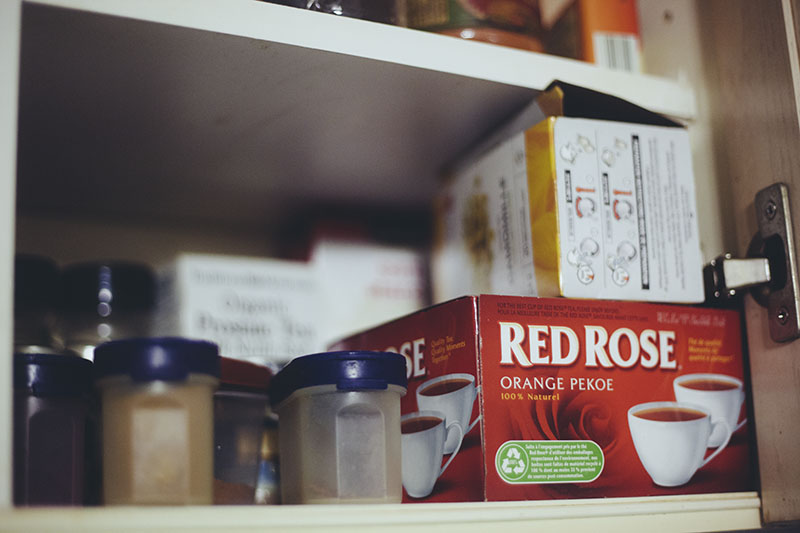
Round 1: Asking Google+ for Advice for Beginner Preppers
But this obviously wasn’t enough. Knowledge and skill are the two most powerful things, but where the heck would you start off when it came to those? There’s just so much that can help you in this department that I found it nearly impossible to come up with a response I was happy with.
So I took to Google+, asking:
Preppers, I have a question for you. If you were confronted by a person who didn’t know the first thing when it came to prepping, but wanted to start on his or her journey to prepare their family for the worst, what would you recommend starting with?
Personally, I feel like a stockpile is a relatively easy/straightforward thing to advise them to start with, but after that, I’m not sure what I would suggest for them to do. Please let me know what you think! Kinda unsure here.
The resulting 57+ comments were some of the most insightful I have ever seen on this topic. You guys have some absolutely amazing points of view, and I honestly could not have even come close to your responses, even if I thought about this topic for a week straight.
Unfortunately, it looks like some have chosen to delete their Google+ accounts, and so their comments were stripped from the post, but there are plenty of excellent responses to my initial post still visible today. I’m going to share some of my favourites with you all here, but do go thorough and read the Google+ post if you would like to read more responses!
The best Google+ responses I got to this question:
- Stick Man: Basics… food, water, shelter. I have a list of websites to send them too. The first being the interview with a survivor of the Bosnian war in the 90s.
- Sinrik Seven: Tell them to start with a B.O.B. One that would last 4 days minimum. It needs food, water, tarp, cordage, metal canteen, cutting tools and something to aid in fire. They need to have at least the basic 5 C’s of survival, Cover, Container, Cordage, Combustion and Cutting tool.
- Harley Wait: Mindset is a lifetime of molding. If they drink lattes everyday get a case of top Ramen & bottled water. If they drink from a garden hose get them a knife & a fire striker.
- Darian C (Bo Skarr): I would recommend starting small. Buying food, small modifications to their vehicle(if they can’t afford a different one), learning survival skills, etc.
- Thoughts On Prepping: Assuming they are bugging in, I’d say food, water, flashlights and a rocket stove. That shouldn’t be too overwhelming.
- Jedi Majic: Ya I would go with food water home supplies – as well as per planning for all home members as to there duties per type of emergency – based on individual skills.
- Kris Gravel: I agree with Jedi but I would also recommend for them to start following some Pintrest boards on the topic. Such a wealth of information. I have learned a lot and realized there were considerations and skills I have not even thought of.
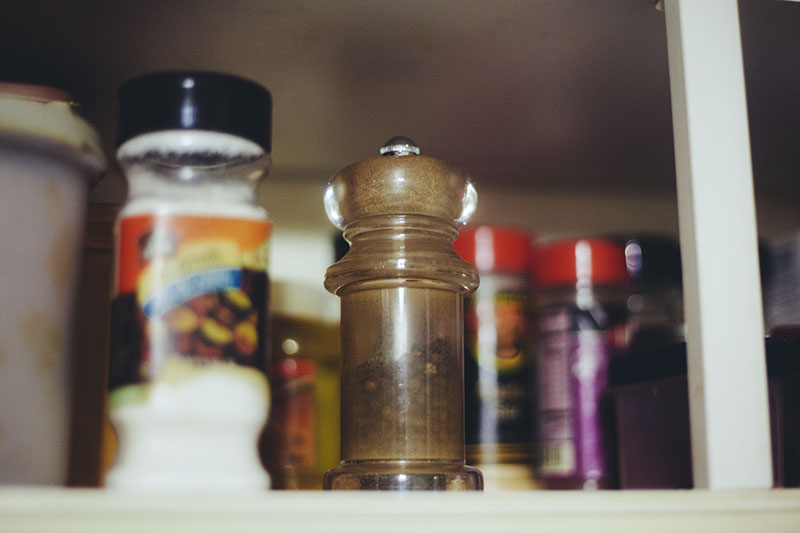
I would suggest that the most important thing is to become aware of one’s surroundings and the possible scenarios that might occur. For each person, the emphasis is different. The terrain, climate, population, sociology, infrastructure, etc. are unique, and most importantly, the amount of time you are talking about being on your own for is unique. Most experts suggest a 30-day plan. Most governments suggest a week. What propels the preparedness community (and differentiates them) is a longer plan of action. Becoming aware of one’s environment and the specific needs associated with one’s particular take on what is a likely situation to be countered is highly individual. Nuts are ready for most of it. And I’m a nut.
–Matt Fitzgibbons
- Dan Bowkley: First off I’d say figure out what you need and use. Whenever you go shopping, buy one of each extra and stash it away. Start with the essentials you need and use every day and work your way up. & WATER
- William Kennison: Knowledge is always your front line weapon and tool it includes imagination, common sense and the ability to improvise. Second is the basics of food, water,shelter and heat. Next is security, safety and building tools. Think first aid before you think bullets.If you can setup a comfortable campsite and cook over a fire proficiently then you are in the solid first step to a decent prep.
- Steven Harris: I personally would advise an emergency car kit. Easy to break the ice with and easier for them to see the need for it. Then step it up to a GHB [Get Home Bag] and/or BOB [Bug Out Bag].
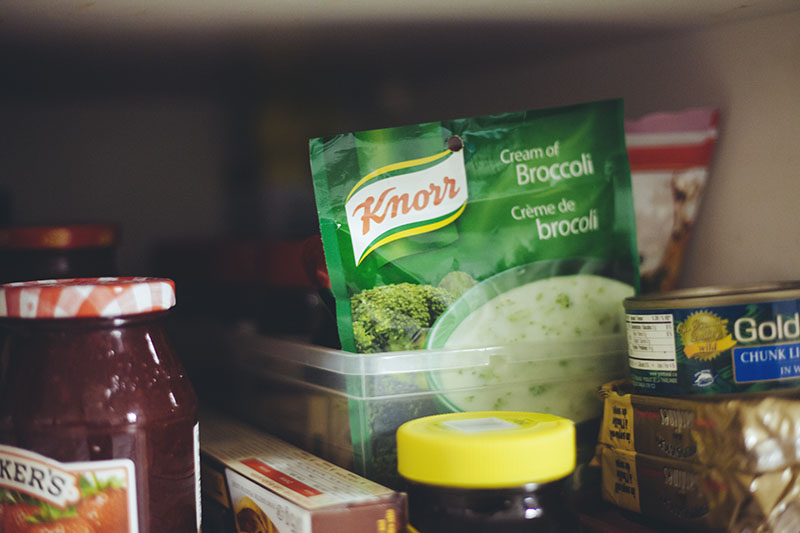
Round 2: Asking Threaders for Advice for Beginner Preppers
A long while later, after the launch of our survival & preparedness forum, Survival Threads, I asked this question again.
With the added benefit of having a forum, and not merely a social media page, to ask this question on, I got some very in-depth and even more insightful pieces of advice from Threaders (Survival Threads forum members).
Take a look at what they had to say to beginner preppers:
Buy a tent, a good amount of food, a good knife or 2, some water/water purification, and go camping. Buy a good backpack, and go rucking. figure out in what situations you may need to bug out, plan several ways to get there. build a BOB based upon what you learned from above, a pack that will satisfy your needs, but won’t weigh you down
–zackmars
if i had to give one piece of advice it would just be to do something. anything. you have to start somewhere. even if you start off with the wrong priorities, you will figure it out. but you have to start somewhere. the more you get into it, the more things will start to make sense
–btl5008
The lightest and most valuable thing you can carry is knowledge. Learn how things work, and how to make and fix things. Make friends, as much as we are conditioned to think that we should be independent, a group always has skills and abilities beyond any one person. ( In allot of ways the myth of independence is a way to keep people powerless. ) Take a first aid course, a first aid kit is nice, but knowing what to do, or even just being calm and trying, will save lives. Pick up “The SAS Survival Handbook” lots more then you will ever need to know. […]
Buy bulk, stock a pantry, in normal times it saves money, in abnormal times you have time to adapt without panic about where your next meal is. Keep a weeks supply of potable water ( tap water in reused jugs, bottles , anything with a good lid, maybe a couple of 20 litre food grade plastic pails ) Lots of events can disrupt utilities, heat in the winter and water top the list of things everyone needs. A skidoo suit will get you through a winter storm without power far better then a credit card. A propane camp stove will melt snow and hot drinks make everything seem easier.
–Gary_Gough
Because each person / family is unique I would suggest to a non-prepper… Get a pad and pencil. On Fri. night after everyone is home from work / school. Fill one bath tub. Go to the street and turn off the water. Go to the breaker panel and trip all the breakers (except the one for the fridge). Put all cell phones, laptops, etc. in the car trunk and lock it. No one is allowed in the fridge or to use the kitchen lights. Remain in the house until Sun. night. Note what you miss.. Start an outline of Water, Food, Cooking, Heat, Light, First aid, Entertainment etc. Seems like after 2 nights and days doing without, they would have a good idea where to start.
–PJL
Simplest answer is water and food for at least 2 weeks.
–Bubbadreier
What are you prepping for and for who is where it is at. Over half the year in much of the northern hemisphere a priority not on fire and fuel means frozen water and food. Where they are means a shift in planning..
–Dan Seven
There were so many excellent pieces of advice shared here that if you benefited from something you read in this section, you would almost certainly benefit further by heading over to the advice to beginner preppers thread to take a look through more responses.
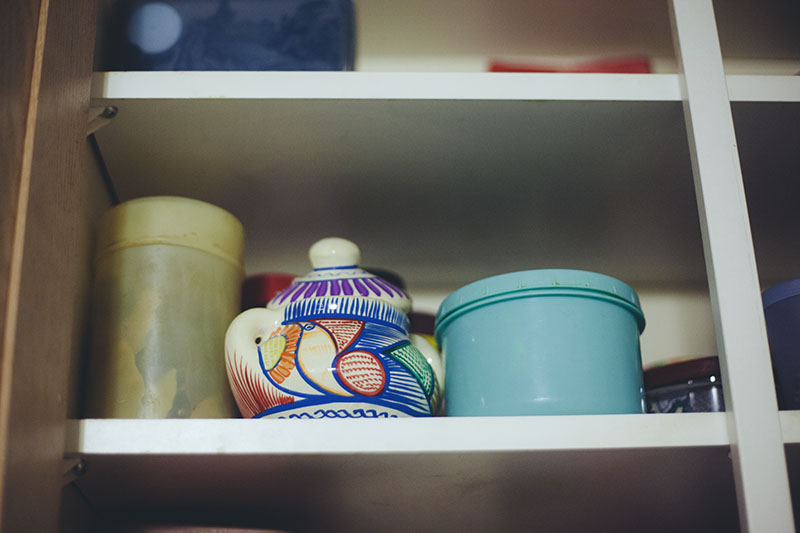
Now it’s your turn…
What advice would you give to a beginner prepper?
Share your advice in the comments section, or, for more of a conversation, continue where we left off on the Survival Threads beginner prepper advice thread…
I might take a bit different tack here. Dear New Prepper, You have figured out that all is not as it seems and that you need to take responsibility for yourself and your loved ones. Congratulations! You are now one of a small minority of the population that have your eyes open and intend to do something about it. May I suggest that the first thing you do is be very, very circumspect in who you talk to and what you talk to them about. Online searches CAN be traced as well. I am not trying to make you paranoid, but be smart about what you do from now on.
You have gotten a lot of advice in these previous posts. I would suggest that you read through them, determine which skills you have and which you do not. Acquire those that you do not have and hone the skills you do have. Not everyone is going to be a paramedic, but you need to know basic first aid and have the supplies to meet your level of expertise. Gardening, repairing, self-defense, and the rest are the same. If you do not have a lot of experience with firearms don’t build an arsenal. A handgun, shotgun, and tactical rifle, all of which you are familiar with and have developed skills with will do you more good than a dozen of each. They are also easier to move with should moving need to be done.
The top 3 “things” you will need, in order of importance are Shelter, Water, and Food. Shelter and Water are practically even in importance and should be treated as such. Water filtering is probably going to be more important than stockpiling hundreds of gallons, which are impossible to transport. When shopping for a filter look at two things. Ease of use and cleaning and cost per gallon of filtered water. You might be surprised at what water is going to cost you up front, but it is priceless once you need that filter for everything you drink and cook with. Shelter is everything from tents and tarps to the clothes you have on your back. Be careful that you get quality over fashion. You will blend in better, and probably be safer, in some sturdy clothes that look like they have been worn a while than running around in new “Tacti-Cool” military togs.
As to food, everyone has different needs and tastes. Have your normal groceries as well as a few cans extra. You can use these up in the immediate aftermath of whatever happens. Personally, I like both freeze dried prepared meals and freeze dried meal ingredients for long term storage. There will be times and places that either will be the superior choice. Know how to fish and hunt. Once you are doing this for survival “sport” is taken from the equation. Techniques that are not legal during blue-sky days may have to be employed to keep protein in your system. Know how to set traps and other silent means of taking wild protein. When you discharge a weapon EVERYBODY knows it. Save that for the right time and place.
I prep both personally and professionally and there is one axiom that I believe in fully. “3 is 2, 2 is 1, and 1 is none”. While this seems to go against what I said about firearms you need to have the basics in everything before you get more firearms. Afterwards then by all means have backups! You will need more than one can opener, pocket multi-tool, flashlight, set of batteries, crank/solar radio, axe, saw, hammer, and any number of other things that have no equal. Folding and fixed blade knives are in this category in spades. You blades will be used more than anything so be very liberal about buying as many as practical, and of a bit better quality than you can afford. This is one item to splurge a bit on. A cheap knife is more of a liability than an asset. A broken blade cutting a hand or leg is going to create a huge problem in a survival situation.
This brings us to the last item I would like to list (without writing a book). Knowledge. Knowledge weighs nothing and can be the one thing that lets you and yours survive when others with more equipment do not. Knowledge of your surroundings at all times is called Situational Awareness. Practice it daily. Know who and what is around you. Think about what you would do if an EMP happened at that minute. Where would you go? How would you get there? What do you have on your person that will help or hinder? What are the dangers? Where are opportunities? Again, I am not trying to instill paranoia, but this exercise practiced daily will lead to further thought as to what you REALLY need to do to survive and the more of that type of thinking will make your survival much surer.
New Prepper, I wish you luck in this endeavor and once you have a course charted, and started, you will sleep much better at night.
Hi everyone! Yall have some very interesting and insightful comments. Well done. Here’s a thought to ponder. Do Yall realize we “prep” everyday in our daily lives? Think about it…. when you buy groceries for the week, get new clothes for the changing seasons, fuel up your car and check the oil at the beginning of the work week…. your “prepping”. Now with that being said, wherever your location, when the weather man says there’s a big storm coming your way, what do you do? Tornadoes, hurricanes, snowstorms, cold or hot Temps are things we ACTUALLY prep for because they actually happen. Now can we be more prepared for these kinds of events? Sure. I would begin your prepping for these kinds of scenarios. What is the sense of stockpiles of mre’s or 30 gallons of water if a tornado wipes your house off its foundation? I’m not saying stockpiles of food and water is a bad idea at all. But a contingency plan is what prepping is. ie…lifestraw. water purification tablets. Understand? To me, PREPPING IS A PLAN WITH A CONTINGENCY PLAN. that’s it. Skills…. first aid classes are FREE from your local ems. FREE. Could save your child’s life or someone in a vehicle accident that you roll up on. Ladies and gentlemen, knowledge is power. Work on your skills and you can make it through any situation. Get your FCC Amateur radio operator’s license. It’s 15 dollars and 35 questions. Easy… amazon has baofeng radios for 25 bucks. Do the things that you’ll use in your day to day lives so when the SHTF, you’ll already know and be comfortable in what you need to do for you and your family. Enjoy life! It’s the only one you have. ?
Of course I completely agree. While skills are the hardest things to acquire they’re 100% the best things for you to have in an emergency situation. Great advice.
“That said. Don’t get married to a storage system, or method, at first.” – Definitely good advice. It takes some trial and error to get an idea of the types of things you’ll want to be stockpiling, I think, since you should only be storing food that lasts pretty damn long, and foods that you’ll actually like eating. And you’ll likely want to get food rotation in the mix, so that can be a bit difficult if you haven’t built your storage system around that.
Thanks for the website recommendation, and for all your advice! Hopefully many get good use out of it :)
And Merry Christmas to you, too! (Ironically, I’m actually responding on Christmas ;) ).
Just thinking out loud here. RE: “My intuition was to advise beginner preppers to start off their preps by working on a stockpile”
That said. Don’t get married to a storage system, or method, at first. Things may change for you. Preppers can get attached to using Sharpie pens, just make sure and write on labels (masking tape?) in case you want to change your system or method later.
Insert video here of ‘Alvin and the Chipmunks’ storing a stack of waffles under a rug, “for Winter”.
Always be on the lookout for what one person I admire called, “Improved Changes”.
Also, don’t use all the same color, style, or shape of storage containers for everything. Imho, people categorize/track/locate things easier if stuff is different. That’s likely not something you’re going to think about at first, but you might later.
Anyway, to sustain everything, before sending anyone to a link like the interview with (SELCO) a survivor of the Bosnian war in the 90s, which may be a wee-bit too much military/World War-like and almost unbelievable or even incomprehensible for some people (especially for those who are refusing to acknowledge or are having a hard time coming to grips with the concepts of, ‘blow-back’, Geo-engineering, VaccineGate, or the concept of an Anglo Power Elite and their toy, the Bank for International Settlements, let alone the cover-up about root canals, whoa!) I would recommend the following well documented website – first – in order to maybe help them stay on, “the bandwagon”, and to help them get a firm grip on facts and how “They” roll when your back is pressed against the wall,… and to help People to let go of the Dreamtime they’ve likely been living in:
HURRICANE KATRINA – The Place With No Name
http://www.theplacewithnoname.com/blogs/klessons/
Maybe toss ’em a link to The Housing Bubble Blog, too?
After that, if the person asked for more (Which, unfortunately, no one has. Lots of glazed deer in the headlight looks, though.) I might mention FerFal. After FerFal, they are ready for SELCO, imho. Or, an introduction to Austrian Economics, depending upon how stupid they profess to be, or act like. [Yeesh, I just realized how fully I’m surrounded by stupid people, willfully ignorant people, and people who prefer to remain in the obliviousness of Dreamtime, and/or don’t give a damn. …Gotta focus on, ‘the pockets’.]
Baby Steps, all the way. You don’t want to startle them, they might bolt.
Somewhere along the line it’s possible they’ve already answered the question I used to see stenciled onto the back window of a pickup truck: “What are you living For?”.
If a person does not know what they are living For, I doubt they will want to prep.
If a person has nothing to live For, I doubt they will want to prep.
Who, or what, do you live For?
Anyone? …Bueller? …Perhaps, high minded ideals and phantoms of liberty lost? …To be a pocket of, dare I say, hope? Or, is a better word for, ‘hope’… ‘possibility’?
If a person’s every hoped for possibility is that house prices will keep going Up – forever – and that does not happen, I imagine it would be hard for them to find something worth living For. Does that describe half The People? If so, why would they prep? They’d be working against their best interests and, in this age of ‘positive thinking’ and the mindset of, ‘we can do anything if we feel we are part of a destructive collective group’ (like locusts?) what motivation would they have to prep? Perhaps they will just try to prey on you and yours? …Same as it ever was? …
To answer the, ‘what’ to do. Answer first, the, ‘why’.
Who, or what, do you live For?
Of course, if the answer is, “nothing”, then maybe find a “something” or become a “someone” to someone else,… without being a locust. I.e. orphanages should just be administrative buildings/offices,… and gloating pompous thugs, should be starved, of your help.
– Joyeux Noel
I believe some good advice from those already into prepping so some detailed advice on getting started is a always a good idea. Many people that just start prepping will end up buying stockpile of food that they don’t really eat. Store what you eat and eat what you store is sound advice but to take it a little further is better.
First of all a new prepper should get themselves a notebook and use it solely for prepping.
Plan a budget for prepping. Plan to put aside a set amount each week or month and use that to build your prepping hoard. I found that I could easy put 10 bucks a week away for prepping since I gave up going to the coffee shop each morning. I also devoted 10 percent of my take home overtime pay. Over time and planning and sales this really helped with food and gear. I devoted the weekly savings to food and the overtime to gear.
For a new prepper they should overcome their haste to run out and buy a bunch of stuff and plan. Take a couple of weeks and write down what meals and snacks you consume. In those weeks decide on 5-7 of the each main meals, lunches, breakfasts and snacks. Meals that you know you would enjoy eating and would easy for you to make. Make that your beginning list of food to stockpile. You might need to experiment with your ingredients for your meals so that you can build your stockpile of food.
Rotate out your stock of food by using it and replacing it. Prepping has actually reduced our grocery bill since we now buy sales. We don’t pay 12 bucks for a can of coffee but wait for a sale and now buy 10, then wait for the next sale and replenish what we used.
Make a list of the gear you would like to have on hand and what it’s normal price is. Decide which of it is most important. Staying warm and cooking is kind of nice for me. If you want to cook indoors then decide what type of stove you want and it’s safety so take some time to decide. Watch for when something on your wish list of gear goes on sale or you can find a great deal.
Build your food and gear as you can afford it. There isn’t a great sense of urgency yet. If something goes terrible wrong tomorrow your not any worst off as you will be like the rest of us and join the shopping hoard to get what you need. Just that longer preppers will be a little more selective in what we need.
Regards
All very sound advice. Have to agree with the fact that many just jump into prepping and don’t simply buy what they eat – they usually eventually learn to only store what they eat, but initial mistakes like that can cost a lot of money.
Lists and organization helps so much. Even if you aren’t a list person, at least having an idea of what you have and still need is immensely useful.
Budgeting is probably the most important prepper skill at first. Like you said, build up as you can afford it – it’s a great way to go. Better than throwing all you have at the project and getting yourself into debt – debt can be way worse than not having an adequate 1-2 year stockpile.
Thanks for the advice, Robert!
I believe everyone’s needs and means are different so their prepping plan should work within their lifestyle. A good place to start is deciding why you want to prep. Preparedness, Frugality, taking care of your family, being able to weather a storm whether it be a real storm, loss of a job or family member, these are all good reasons to prep. Fear should not be a motivator in this area, you need to take a calm approach so you don’t make rash decisions out of fear for the “disaster” that never happens. Everything you do initially should benefit you and your family whether a disaster happens or not.
Start by taking an inventory of what you already have and decide how much is enough? Two weeks, 30 days, 90 days, a year or more? This will vary depending on your means and comfort level. In my opinion EVERYONE should strive for having the resources to live 30 days with no systems of support. Systems of support include power, water, sewer, grocery stores, even jobs. If you plan for being stuck in a location for 30 days with nothing more than what you have, you should be better off than almost any other non-prepared person or family.
Ensure you cover all 7 areas of concern (in order): Water, Shelter, Food, Security, Energy, Health/Sanitation, and Communications.
Each area has almost unlimited improvement potential but start simple.
store bottles of water (1 gallon per person to start with), a tent, some canned goods and dry pre-packaged foods, get a hand gun or pepper spray if not interested in a gun, buy a power inverter for the car and some extension cords – perhaps add some rechargeable batteries, get (or build) a decent first aid kit, get a battery powered radio to receive news and weather reports when the power is out. Work on growing your savings to have a months pay saved up in case someone loses a job it buys you piece of mind and time to find a new one.
Start here and improve over time.
This is all very good advice, thanks for taking the time to write it up, Stephen!